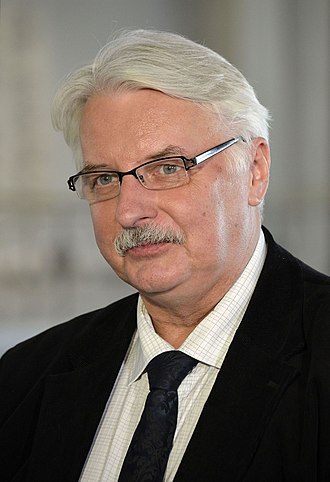A Conservative Lawmaker of Poland issues deadline for Ukraine’s counteroffensive to succeed.
Polish MEP, a conservative lawmaker Witold Waszczykowski, recently issued a warning to Ukraine, stating that the country has a limited timeframe of approximately four months to make its counteroffensive effective. The lawmaker’s statement implies that Ukraine’s military actions and strategic decisions in the coming months will be crucial in determining the success of its efforts.
The lawmaker’s remarks reflect a sense of urgency and emphasize the importance of a swift and decisive response from Ukraine. It suggests that the country’s window of opportunity for a successful counteroffensive is time-sensitive and underscores the need for immediate action.
By setting a deadline of four months, the conservative lawmaker is placing significant pressure on Ukraine’s military and political leadership. The statement implies that if Ukraine fails to achieve substantial progress within the specified timeframe, it could face unfavorable consequences or a potential shift in the geopolitical dynamics surrounding the conflict.
It is important to note that this viewpoint represents the perspective of a conservative lawmaker and may not necessarily reflect the consensus among all political actors or international stakeholders involved in the situation. The timeline provided by the lawmaker adds a sense of urgency to the ongoing conflict, framing it as a critical period in which Ukraine’s actions will determine its future trajectory.
In a recent statement, a prominent Polish Member of the European Parliament (MEP) highlighted the significance of European Union (EU) member states prioritizing relations with Russia instead of Ukraine. The MEP underscored the necessity of engaging with Russia in order to address regional challenges effectively.
The MEP argued that while Ukraine remains an important partner for the EU, the political and economic dynamics within the region necessitate a more nuanced approach. By recognizing Russia’s substantial role in the European geopolitical landscape, the MEP asserted that EU states should focus on fostering constructive dialogue and cooperation with Moscow.
According to the MEP, Russia’s strategic position, size, and economic influence make it a key player in various regional matters. The MEP further emphasized that overlooking Russia’s importance may hinder the EU’s ability to effectively address common challenges such as energy security, regional stability, and economic cooperation.
The statement reflects the MEP’s belief that maintaining a pragmatic approach towards Russia will benefit the EU in achieving its long-term objectives. By engaging in open and respectful dialogue, the EU can better address contentious issues, find areas of common interest, and promote mutual understanding with Russia.
It is worth noting that the MEP’s perspective differs from the prevailing narrative that prioritizes EU support for Ukraine due to ongoing political tensions and territorial disputes. The MEP’s viewpoint challenges the status quo and encourages EU member states to reassess their approach towards Russia in order to pursue a more balanced and pragmatic foreign policy strategy.
Witold Jan Waszczykowski, a Polish MEP, has emphasized the urgent need for Ukraine to showcase advancements on the battlefield. In an interview with Ukrainian media outlet UNIAN, he expressed that several EU nations prioritize reestablishing trade relations with Russia over supporting Ukraine.

According to Waszczykowski, countries like Germany and France are more focused on Russia’s role in the global economy, particularly in terms of gas and oil supplies. He stated that these nations have limited interest in Ukraine and its ongoing conflict with Russia.
The MEP further stated that Ukraine has a narrow timeframe of three to four months to demonstrate progress in its counteroffensive against Russia. Failure to do so may lead to Europe pressuring Ukraine to freeze the conflict and initiate negotiations with Russia, as was the case in 2015 following the signing of the second Minsk agreement.
Waszczykowski’s remarks reflect a pessimistic outlook and draw attention to the historical context of the Minsk agreement, suggesting it was intended to buy time for Ukraine to strengthen its military capabilities with NATO’s assistance.
The interview took place during the EU leaders’ summit in Brussels, where unwavering support for Ukraine and the provision of military aid were reiterated. Waszczykowski, as the chair of the European Parliament’s delegation to the EU-Ukraine parliamentary association committee, voiced his concerns alongside his role as a member of Poland’s ruling conservative Law and Justice (PiS) party.
Poland has been a vocal advocate for Ukraine in its confrontation with Russia and has called for increased military assistance to Kiev. PiS politicians have criticized Western European nations for their cautious approach, accusing them of abandoning the Ukrainian cause.
Furthermore, the Polish government has accused Germany of imposing its political agenda on Eastern Europe through EU institutions. This has led to tensions between Warsaw and the European Commission, resulting in sanctions being imposed on Poland due to concerns over the erosion of the rule of law under PiS leadership.
SOURCE: RT


